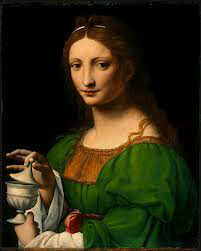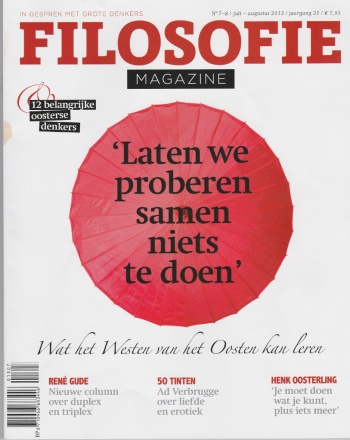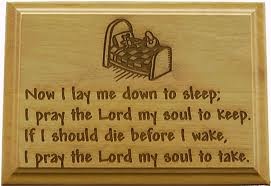
In this article we continue the analysis of this intriguing song.
‘Charlotte’ is among others described in the Urban Dictionary as a girl who is known for being beautiful both inside and out. Although the Urban Dictionary says that Charlotte is also good in bed and although there once was a song called “Charlotte the Harlot” by a group called ‘Iron Maiden’, yet the meaning of the name ‘Charlotte’ in itself cannot in any way be linked to being a harlot. Therefore when Dylan says that ‘Charlotte’s a harlot’ he seems to have chosen the name ‘Charlotte’, not only as a vague reference to and a stepping stone from that song “Charlotte the Harlot”, but mainly because it rhymes with ‘harlot’ and not because the meaning of this name may in itself in any way be connected to a harlot or to any whorish behavior whatsoever. ‘Charlotte’s a harlot’ is further defined by the words ‘She dresses in scarlet’. The word ‘harlot’ combined with the word ‘scarlet’ immediately takes us to the Book of Revelation Chapter 17:3-5 ‘So the angel took me in the Spirit into the wilderness. There I saw a woman sitting on a scarlet beast that had seven heads and ten horns, and blasphemies against God were written all over it. The woman wore purple and scarlet clothing and beautiful jewelry made of gold and precious gems and pearls. In her hand she held a gold goblet full of obscenities and the impurities of her immorality. A mysterious name was written on her forehead: “Babylon the Great, Mother of All Prostitutes and Obscenities in the World.” I could see that she was drunk—drunk with the blood of God’s holy people who were witnesses for Jesus. I stared at her in complete amazement’. Duessa, Redcrosse’s counterpart in Edmund Spenser’s epic poem ‘The Faery Queene’ is also dressed in scarlet. This is not without importance because this epic poem – as we will outline further below – seems to have had an influence on this song. Spenser made the same allegory on Revelations 17:3-5 as well. The rhyme combination ‘scarlet, harlot’ is also made in the final verse of Dylan’s song ‘Jokerman’ and like in this song, the combination of these two words has a negative connotation. Scarlet is a vivid red color, sometimes with an orange tinge, and just like purple is typical of the exuberant lifestyle and clothing of the rich and the wealthy (cf Proverbs 31:21). The red – scarlet – color of the woman’s clothing represents her blood-thirstiness and fully portrays her as a whore. In the Bible a harlot represents the apostasy of God’s own people and also – like in the Book of Revelations - the antagonistic world empires. It is obvious that such a whorish woman cannot fulfill the poet and therefore cannot be his future bride.
Whereas ‘Honey’ and ‘Charlotte’ represent vice, ‘Mary’ who follows the two, represents virtue. Very little is said about her, only this: ‘Mary dresses in green’. At the same time this brief qualification of Mary is a very significant one and represents the core of the song. Who is this Mary? Some have argued that the virgin ‘Mary’ is referred to here. Although she was already introduced in the opening song of the album ‘Duquesne Whistle’ where it says: ‘I can hear a sweet voice gently calling, must be the mother of our LORD’, yet we don’t feel that Dylan had the Virgin Mary in mind when he wrote: ‘Mary dresses in green’. Firstly, the Virgin Mary is usually portrayed dressed in blue, not in green. Secondly, we feel that the woman of whom Dylan here says that she is dressed in green and who in the final verse of the song is addressed with the words: ‘When I met you I didn't think you would do’ and also ‘I don't want nobody but you’ is one and the same person. Therefore, to address the Virgin Mary with words like ‘I don’t want nobody but you’ would not only be inappropriate, to some ears it would even sound blasphemous and all this makes it very unlikely that the Virgin Mary is meant here.
We feel that Mary of Magdalene (sometimes called Mary of Magdala) is the likeliest candidate to be the ‘Mary’ Dylan may have had in mind here. She is often portrayed dressed in green, green, in the color of fertility. (On the right top of this article you see a picture of a painting of Mary of Magdalene, dressed in green, by the Italian Renaissance painter Bernardino Luini). In the New Testament Mary of Magdalene is a very important woman. Mary of Magdalene was one of Jesus’ most ardent followers and traveled with Jesus. Mary of Magdalene was with Jesus during the most crucial moments of Jesus’ life, during the crucifixion she stood by His side at the cross and she reappears immediately after the Resurrection, to be the first to see Jesus back again (Mark 16:9). What makes Mary of Magdalene so special is the fact that before she started to follow Jesus and travel with Him, Jesus cleansed her of ‘seven demons’ (Luke 8:2 and Mark 16:9). So, when in the final verse it says: ‘When I met you I didn't think you would do’ it is as if Dylan has Jesus speak through his mouth and have Jesus say about Mary of Magdalene: ‘When I met you I didn't think you would do’. This ‘ I didn't think you would do’ does not mean - as the Da Vinci Code seems to suggest - that Mary of Magdalene was ever involved in a romantic love relationship with Jesus nor that she ever was some kind of a harlot.
On the contrary, for such a theory there is not a shred of Biblical or non-Biblical evidence available. So when Dylan has Jesus say: ‘When I met you I didn't think you would do’ it is as if Jesus would have said to Mary of Magdalene: ‘When I first met you, you were possessed by seven demons, in that dreadful condition you were unable to follow me, first I had to cleanse you of those demons and make you fit to follow me’. There are more – and deeper - things to be said about the words ‘When I met you I didn't think you would do’ but we will do so below when we discuss the final verse.
When the poet goes on to say that ‘It's soon after midnight, and I've got a date with a (the) fairy queen’ he seems to take us into a dreamland, into the fancy land of fairies, elves and midgets, the land where he has a date with a fairy queen. The dream woman will be Mary but he has not got her yet, he is not yet mentally there – he is still ‘away with the fairies’ - and he is still fantasizing on how things will be. Some have argued that ‘Mary’ and the ‘Fairy Queen’ might be one and the same person but this thought seems unlikely because he does not speak of some imaginative woman but of a real woman – which does not preclude the fact that this woman also symbolizes much more than just a ‘physical’ woman because – under the layer of that ‘physical’ woman – there is also a ‘spiritual’ woman shining through This spiritual woman symbolizes the relationship between God and his people, and between Christ and his bride, the church.
There are a number of resonations in this verse line ‘It's soon after midnight, and I've got a date with a (the) fairy queen’. A first resonation is said to be the 16th ballad ‘Tam Lin’. In this ballad – which has many different versions - the elfin Tam Lin is captured and owned by the Fairy Queen. This elfin Tim Lin however, makes visiting girls from the real world pregnant and in this way more or less acts like a two timing elfin, something to which Dylan would later on in the second bridge Dylan allude to by speaking of ‘a two timing Slim’. Another connotation may be, that the girl – though named ‘Janet’’, not ‘Mary’ - who in this ballad Tam Lin has made pregnant happens to be dressed in green.
A second resonation is said to be a Shakespearean. As outlined above, some see in the song’s title ‘It's soon after midnight’ not only a direct reference to Shakespeare’s ‘A Midsummer Night’s Dream’ but they also see in the words ‘I've got a date with a (the) fairy queen’ an allusion to the Fairy Queen who is this play has a midnight encounter with Bottom. But it would seem to me that only some word combinations from both the ballad ‘Tam Lin’ and ‘A Midsummer Night’s Dream’ resonate here but that there is no real connection with the meaning of this verse line, or with any other part of the song for that matter.
A third resonation which is also Shakespearean and which may well have much more connection with the meaning of the song is the fairy queen ‘Queen Mab’ referred to in Shakespeare's play ‘Romeo and Juliet’. Queen Mab’s is involvement in in this play, is described in a speech by Mercutio. Queen Mab is portrayed by Mercutio as a sort of miniature creature who drives her chariot into the noses and brains of sleeping people, forcing them to have dreams in which their wishes and wildest dreams are fulfilled. At one time Mercutio says about Queen Mab: ‘And in this state she gallops night by night, through lovers’ brains, and then they dream of love’. This is exactly what happens in this song. The poet hasn’t got her yet, he has to wait for her, the woman or bride is very much a promise for the future, yet he knows for sure that she will be his and he is now fantasizing on how great and wonderful the prospect will be of being with her forever.
However, as far as contributing meaning to this verse line ‘ I've got a date with a (the) fairy queen’ is concerned, we feel that Edmund Spenser’s epic poem ‘The Faerie Queene’- first published in 1590 -1596 - may be an important source. The heroic knight Redcrosse (a Christian) has finally conquered the dragon. Yet his long ago planned and promised marriage to Una must be delayed again. Before Redcrosse, the valiant knight and warrior, is allowed to marry Una, Redcrosse has has more work to do and his mission is not fulfilled yet. Redcrosse, as Dylan puts it, has ‘got a date with the Faerie Queene’ ,which means that Redcrosse made an arrangement with the Faerie Queene that, before he can Marry Una, he has to serve the Faerie Queene for another six years to defeat the king Paynim. The poem says that the knight Redcrosse must go "Backe to return to that great Faerie Queene, and her to serve six yeares in warlike wize, gainst that proud Paynim king (I.xii.18)." This attitude of heroic bravery combined with docile servitude, this whole concept of faith in the future against all odds, this notion of endurance, perseverance and patience before one finally reaches the ultimate goal is typical of Edmund Spenser’s ‘Faerie Queene’, not only in this passage but in the entire epic poem. We see this same attitude and notions also very prominently present in Dylan’s ‘Soon after Midnight’. We have already seen that the poet is not ‘in a great hurry’ and he is not afraid ‘of the fury’ his brave stance will evoke in other people’s judgments. He has ‘got a date with the Fairy Queen’, he made an arrangement with her to hold back his passions and to restrain his emotions till the right time has come and the final battle has been won. Meanwhile the Fairy Queen allows him to fantasize and dream about the great future which is about to come and for which he is prepared to wait because he knows that the battle is nearly over. It will be soon ‘after midnight’, it is nearly twelve o’ clock, it is nearly midnight and his day will begin soon.
Like the first bridge of the song, also the language of the second bridge of the song is reminiscent of the strong, robust and violent language of the Old Testamentical prophets and kings, language which King David used in his Psalms. To understand this language of the second bridge in our modern times, we have to bear in mind that again, a great and righteous king and valiant warrior speaks here, a king and warrior just like King David once was and in his wake – and to perfection - the great King and warrior Jesus Christ. He chose his bride – the church - but in the eyes of people this bride was not good enough. That’s why it now says: ‘They chirp and they chatter’ which means that people and the public in general, like flocks of birds that chirp together, gossip and chat idly about all kinds of minor and unimportant details and also great faults they find in his future bride, with only one goal and that is to denounce this bride and to express that she simply won’t do in their eyes. The poet, however, is determined to go on and is not really touched by all this and lightheartedly dismisses the slander and gossip by saying ‘What does it matter?’. All this gossip and slander will not make him go back and the best remedy is to simply ignore all criticism, just like Shakespeare once said: ‘To tame a shrew, and charm her chattering tongue’. ‘What does it matter?’ has another denunciative connotation. ‘What does it matter?’ also refers to the words that follow: ‘They're lying and they're dying in their blood’. Again, to understand the impact of these words in our age, we have to take into account that Dylan has a great and righteous King speak here; a warrior who has conquered his enemies and that is why we hear war-like language. ‘What does it matter?’ is as if the poet now says: ‘Why should I care any longer about my enemies, we fought and I won, they lie on the battlefield, on the killing floors, in their blood, and they will all die, that is why I now say: ‘They're lying and they're dying in their blood’.
But there is more to the words ‘They're lying and they're dying in their blood’. If you put the emphasis on the words ‘They’ these words contrast with the situation his future bride was in when he first met her, as if he says: ‘My enemies are lying and dying in their blood, but not so my future bride. O, Yes she too was lying in her blood but unlike my enemies I came to her rescue and she did not die in her blood, on the contrary, look to what the prophet of Ezekiel says in Chapter 16, verse 6 and following: ‘But I came by and saw you there, helplessly kicking about in your own blood. As you lay there, I said, ‘Live!’. And I helped you to thrive like a plant in the field. You grew up and became a beautiful jewel. Your breasts became full, and your body hair grew, but you were still naked. And when I passed by again, I saw that you were old enough for love. So I wrapped my cloak around you to cover your nakedness and declared my marriage vows. I made a covenant with you, says the Sovereign Lord, and you became mine’. When in the last verse Dylan says: ‘When I met you I didn't think you would do’ the above words of Ezekiel may have been on his mind. He found his future bride lying in her blood, so at first it looked as if she would not do, but he rescued her even if she did not deserve it.
‘Two-Timing Slim who's ever heard of him?’ dwells on the same subject; it is all about loyalty and faithfulness in a love relationship. What does ‘Two Timing’ mean? A person is said to be ‘Two Timing’ when he or she tries to maintain two separate ‘love’ relationships at the same time, without the persons involved in this love affair know about each other that they are dating with one and the same person. Why does Dylan add ‘Slim’ to the words ‘Two Timing’? To whom does he refer? Some have argued that he refers to Slim Whitman, an American country music and western music singer, songwriter and instrumentalist who died in 2013. But this explanation sounds odd because Slim Whitman has never been known to be ‘two timing’. On the contrary, when Slim Whitman’s wife died in 2009, she had been married to Slim Whitman for 67 years so if there has ever been an artist who was not ‘two timing’ is must have been Slim Whitman, at least so it seems.
Others have argued that Dylan, when he says ‘Two-Timing Slim who's ever heard of him?’, he would refer to himself, to his old nature, to his mischievous behavior prior to becoming a Christian, but now that he is inwardly renewed, he has got new eyes and he is burying the ‘old’ man by ‘dragging his corpse through the mud’ and in this way he would publicly denounce his former ‘two timing’’ life style. In fact, he would speak here of that same enemy inside who ‘crashed into the dust’ (‘Long and Wasted Years’).
However, we feel that the above analyses do not satisfy. We feel that ‘Two-Timing Slim’ does not refer to any specific person but that ‘Two-Timing Slim’ is a personification of disloyalty, unfaithfulness and adultery. Disloyalty, unfaithfulness and adultery have no real face, name, or future and therefore, in eternity, will not be remembered and will end up in the land of oblivion. It is the reason why the words ‘Two-Timing Slim’ are qualified by the words ‘who's ever heard of him?’. The poet takes us back to the Latter Day, to what will happen ‘soon’, ‘after midnight’. (For the meaning of ‘soon’’ in this context we refer to Rev. 22:20). At the Latter Day the great King, Christ, will present His bride, in a majestic style, as written in Revelations 19:7,8: ‘Let us be glad and rejoice, and let us give honor to him. For the time has come for the wedding feast of the Lamb, and his bride has prepared herself. She has been given the finest of pure white linen to wear’. This bride – the church – did not deserve it at all to stand there in such a glorious fashion. Throughout history she had been ‘two-timing’ on Him. As stated above, Ezekiel 16:6 pictures that she was dying in her blood, but He came to her rescue. But the rest of Ezekiel 16 and Hosea 2 show that she was not at all grateful for her miraculous redemption. On the contrary, she was unfaithful to Him and acted – as Dylan wrote elsewhere - ‘as whorish as ever’. But His burning love never gave up on her, as is written in Ephesians 5: 25, 26:” He gave up his life for her, to make her holy and clean, washed by the cleansing of God’s word. He did this to present her to himself as a glorious church without a spot or wrinkle or any other blemish. Instead, she will be holy and without fault’. At the Latter Day, it will appear that Chris has forgotten her ‘two timing’ behavior as if it never happened and He will say of all ’two timing’ conduct: who's ever heard of him?’ It is as if He will then say: ‘I paid for this bride in my own blood, she is cleansed now and anyone who now dares to accuse my chosen bride will meet with my violent wrath and I'll drag his corpse through the mud’, which means that I will publicly condemn, denounce and humiliate such a person’.
When it says: ’I'll drag his corpse through the mud’ we must keep in mind that this is again war-like language of a righteous King and Warrior. The word choice is also reminiscent of the Trojan War when Hector was killed by Achilles, and Achilles dragged Hector’s corpse behind his horse. ’I'll drag his corpse through the mud’ may also allude to the prophet of Isaiah, chapter 14 verse 19 where it is written: ‘Like a corpse trampled underfoot, you will be dumped into a mass grave, with those killed in battle’. All this heroic language seems to make it clear that the acquisition of the eternal bride is serious business and nothing – not even the most extremely violent resistance - can stop Him from reaching His ultimate goal.
When Dylan – in the final verse of the song - goes on to say that ‘It’s now or never’, he intends to say more than just to quote an old Elvis Presley song. ‘It’s now or never, more than ever’ emphasizes the urgency of the situation and that the whole affair of his future bride has reached a decisive stadium. Against all odds, in defiance of what people expect him to do, He is now ready to present the bride of His choice to the world. His choice for her is not based on any outward beauty or any high moral standards of His bride to- be, on the contrary, he explicitly states that ‘When I met you I didn't think you would do’. Again, the Biblical allegory shines through here. The people of Israel were chosen to be God’s bride. When God came to the rescue of His people in Egypt- as described by the prophet of Ezekiel in Chapter 16, verse 6 – He found that Israel was helplessly ‘kicking around in her blood’. When God ’met’ her, so to say, she ‘wouldn’t do’, there was no reason why He should have been so merciful to His bride Israel. But His goodness and benevolence got repaid with scorn. The prophets, especially Ezekiel and Hosea, made it abundantly clear that also later on Israel ‘wouldn’t do’. Israel was very unfaithful to him and acted even worse than –to speak in the language of this song – ‘Charlotte, the harlot’ because as Ezekiel 16: 33 says: ‘Prostitutes charge for their services--but not you! You give gifts to your lovers, bribing them to come and have sex with you’. But yet God gave never up on her and in the end He will make it possible that she will do!. This allegory continues in the New Testament. Above we already outlined in the passage ‘Mary dresses in green’ that Mary of Magdalene was chosen to be one of the first witnesses of Jesus’ resurrection from the dead, albeit the fact that when Jesus first met her ‘She wouldn’t do’ because at the time she was possessed by seven demons.(Mark 16:9). But what about the New Testamentical bride, the church? When He, Jesus, first met her on earth, and also later on when He accompanied her from heaven on her journey through history ‘She wouldn’t do’ either. The church committed many horrible crimes and instead of helping the poor and wretched, the church often became an institution of oppression, power, greed and sexual abuse. Also this bride, the church acted whorishly. But He, Jesus, never gave up on her. We read in Ephesians 5: 25, that: “He gave up his life for her, to make her holy and clean, washed by the cleansing of God’s word”. At the end of times, on the Latter Day, ‘soon, after midnight’, the bride- Israel and the church- will be standing there, cleansed for the eternal wedding (Rev. 19:7,8) and wearing – as Dylan wrote elsewhere in great poetic style - ‘silver bracelets on her wrist and flowers in her hair’.
The song ends by saying: ‘It's soon after midnight, and I don't want nobody but you’. The ending ‘I don't want nobody but you’ can be interpreted as a pretty carnal, if not unchaste, way of expressing his passion. And if so, do these final words ‘I don't want nobody but you’ not contrast with the spiritually elevated language and allegorical biblical imagery which we feel is hidden in this song? However, we have to bear in mind that in the Bible this sort of romantic language is not at all as unusual as it may sound. The Book of Songs for instance, is full of the same allegoric language, in which the love of God for his people is expressed as a romance, as the love between a young man and a young woman, in words which may sound pretty carnal but are yet chaste, e.g. Songs 3: 1 where a young woman says: “One night as I lay in bed, I yearned for my lover. I yearned for him, but he did not come”.
‘I don't want nobody but you’ is as if the groom now says: ‘Nobody expected me to choose you, even if you did not deserve it to be my bride, yet you are the only one, ‘I don't want nobody but you’. The long quest to find the real woman has finally come to rest. His woman is on board.
As always, please feel free to comment on this article, to do so please scroll down and press the button 'reacties'






![bob[1].jpg bob[1].jpg](/media/Image/thumbs/8547p17nvu25hj14nn4961udlfjtggk1.jpg)

![stdas0439[1].jpg stdas0439[1].jpg](/media/Image/thumbs/6645p17l8e6t5u1dv3btms441oatb5v1.jpg)
![Bob_with_mayor_of_Milano[1].jpg Bob_with_mayor_of_Milano[1].jpg](/media/Image/thumbs/5196p17k46lll31sjijmjmn0p6qk391.jpg)